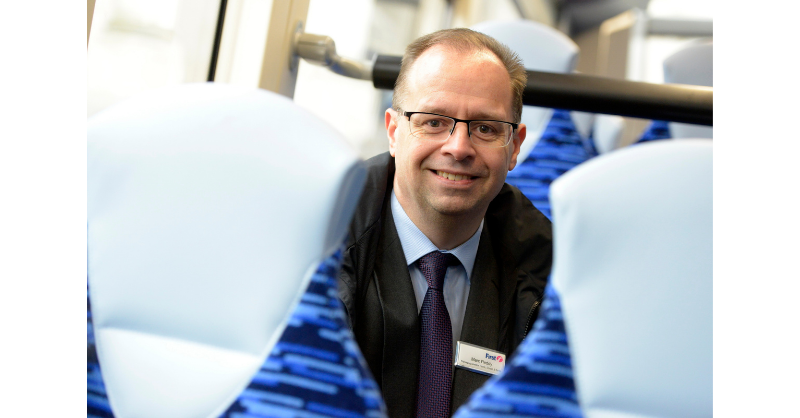October 08 2020
Marc Reddy, Managing Director of First Hampshire, Dorset and Berkshire, writes our fifth clean air themed blog about the importance of partnership working to improve air quality, and that we must remember bus is part of the solution.
With “Clean Air Day” on 8 October, you may ask yourself, “Why bother? Our clean air problem has been resolved, and for the first time in decades, buses ran without encountering a single traffic jam – all courtesy of lockdown!”
Yes, air quality substantially improved during the pandemic in many areas, due to reduced car use. But traffic levels are reportedly soaring again, with figures released by TomTom earlier this week showing that more motorists are hitting the road than at the same time in 2019 – and that’s with the UK Government advising people to work from home (if they can) again!
If anything, it acts as a stark reminder that there are no easy answers. We all have our part to play in contributing to clean air. Take my operations covering Hampshire, Dorset and Berkshire, for example. Clean air zones have been proposed and discussed for Portsmouth, Southampton and Fareham. As a responsible bus operator, we’ve drastically reduced our fleet’s NOx emissions in recent years, by disposing of older vehicles, purchasing over 80 brand new Euro VI buses and retrofitting a further 116 vehicles.
In my experience, having strong and productive relationships with local authority colleagues is essential when tackling air quality in a targeted and effective way. It is not just about funding for investments, but also bus priority, P&R schemes, dedicated bus lanes, investment in roadside technology and infrastructure and really making bus travel as attractive as possible.
However, Clean Air Day is also an opportunity for consumers to think more about how their lifestyle choices impact on the environment and encouraging them to use public transport more. Not just for the practical benefits such as not having to find a parking space, quicker journeys (sometimes) and so on, but people should really consider making longer-term changes to their life style and mobility modes to benefit the world we all live in, and if ever there was a moment to do this, now is the time from having the “circuit breaker” of lockdown to make people think carefully about their travel choices.
We mustn’t forget bus is part of the solution, rather than part of the problem. As everyone in the bus industry knows, this can be a difficult “sell” sometimes, but making informed choices on how to travel is vital in making our environment better for everyone.
There is no “magic bullet” to making the bus more attractive, but one of the keys to this is enabling networks to provide our customers with faster journeys than the comparable car trip. Having strong relationships with local authorities is essential here. In Hampshire, we have managed to achieve this with our Bus Rapid Transit Eclipse service between Fareham and Gosport, where (pre-Covid) over 20% of the customers using the service used to make the journey by car. And whilst the premium Eclipse service grew in popularity, car traffic on the adjacent main road for normal traffic fell. This is exactly the sort of dual outcome that bus operators and local authorities want from their joined-up efforts.
It’s worth reminding ourselves that real-world tests have shown that a Euro VI bus emits far less NOx emissions per vehicle mile than some popular Euro VI diesel cars. Tests have also demonstrated that such a car emits up to ten times the NOx emissions of a large bus.
Looking back, First Bus was amongst the first of the large bus operators to commit to only investing in low-carbon EuroVI standard vehicles. Importantly, many parts of First Bus also diversified away from fossil-fuelled vehicles and into Electric Vehicles, Biogas and Hydrogen. And earlier this year we made our boldest clean air commitment by pledging to operate a zero-emission fleet by 2035. To achieve this, we’ve committed to stop purchasing diesel vehicles after December 2022.
However, making a strong commitment is only the beginning. There is much work to do. In the meantime, we all have our part to play right now and help our customers and potential customers make using the bus as attractive and as easy as possible, so everyone has the ability to help improve air quality.
Follow First Hampshire, Dorset & Berkshire on Twitter for the latest news and updates: @firstdorset
